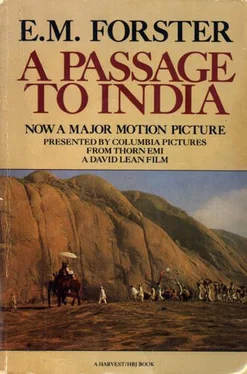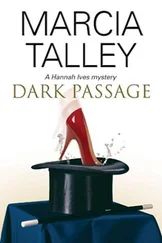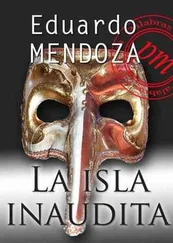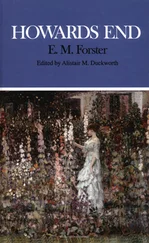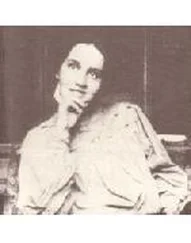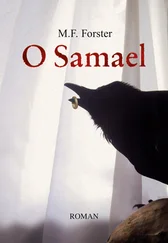Edward Forster - A Passage to India
Здесь есть возможность читать онлайн «Edward Forster - A Passage to India» весь текст электронной книги совершенно бесплатно (целиком полную версию без сокращений). В некоторых случаях можно слушать аудио, скачать через торрент в формате fb2 и присутствует краткое содержание. Город: San Diego, California, ISBN: , Издательство: Harcourt, Brace & World, Inc., Жанр: Классическая проза, на английском языке. Описание произведения, (предисловие) а так же отзывы посетителей доступны на портале библиотеки ЛибКат.
- Название:A Passage to India
- Автор:
- Издательство:Harcourt, Brace & World, Inc.
- Жанр:
- Год:неизвестен
- Город:San Diego, California
- ISBN:0-15-671142-7
- Рейтинг книги:5 / 5. Голосов: 1
-
Избранное:Добавить в избранное
- Отзывы:
-
Ваша оценка:
- 100
- 1
- 2
- 3
- 4
- 5
A Passage to India: краткое содержание, описание и аннотация
Предлагаем к чтению аннотацию, описание, краткое содержание или предисловие (зависит от того, что написал сам автор книги «A Passage to India»). Если вы не нашли необходимую информацию о книге — напишите в комментариях, мы постараемся отыскать её.
A Passage to India — читать онлайн бесплатно полную книгу (весь текст) целиком
Ниже представлен текст книги, разбитый по страницам. Система сохранения места последней прочитанной страницы, позволяет с удобством читать онлайн бесплатно книгу «A Passage to India», без необходимости каждый раз заново искать на чём Вы остановились. Поставьте закладку, и сможете в любой момент перейти на страницу, на которой закончили чтение.
Интервал:
Закладка:
CHAPTER V
The Bridge Party was not a success—at least it was not what Mrs. Moore and Miss Quested were accustomed to consider a successful party. They arrived early, since it was given in their honour, but most of the Indian guests had arrived even earlier, and stood massed at the farther side of the tennis lawns, doing nothing.
"It is only just five," said Mrs. Turton. "My husband will be up from his office in a moment and start the thing. I have no idea what we have to do. It's the first time we've ever given a party like this at the club. Mr. Heaslop, when I'm dead and gone will you give parties like this? It's enough to make the old type of Burra Sahib turn in his grave."
Ronny laughed deferentially. "You wanted something not picturesque and we've provided it," he remarked to Miss Quested. "What do you think of the Aryan Brother in a topi and spats?"
Neither she nor his mother answered. They were gazing rather sadly over the tennis lawn. No, it was not picturesque; the East, abandoning its secular magnificence, was descending into a valley whose farther side no man can see.
"The great point to remember is that no one who's here matters; those who matter don't come. Isn't that so, Mrs. Turton?"
"Absolutely true," said the great lady, leaning back. She was "saving herself up," as she called it—not for anything that would happen that afternoon or even that week, but for some vague future occasion when a high official might come along and tax her social strength. Most of her public appearances were marked by this air of reserve.
Assured of her approbation, Ronny continued: "The educated Indians will be no good to us if there's a row, it's simply not worth while conciliating them, that's why they don't matter. Most of the people you see are seditious at heart, and the rest 'ld run squealing. The cultivator—he's another story. The Pathan—he's a man if you like. But these people—don't imagine they're India." He pointed to the dusky line beyond the court, and here and there it flashed a pince-nez or shuffled a shoe, as if aware that he was despising it. European costume had lighted like a leprosy. Few had yielded entirely, but none were untouched. There was a silence when he had finished speaking, on both sides of the court; at least, more ladies joined the English group, but their words seemed to die as soon as uttered. Some kites hovered overhead, impartial, over the kites passed the mass of a vulture, and with an impartiality exceeding all, the sky, not deeply coloured but translucent, poured light from its whole circumference. It seemed unlikely that the series stopped here. Beyond the sky must not there be something that overarches all the skies, more impartial even than they? Beyond which again…
They spoke of Cousin Kate .
They had tried to reproduce their own attitude to life upon the stage, and to dress up as the middle-class English people they actually were. Next year they would do Quality Street or The Yeomen of the Guard . Save for this annual incursion, they left literature alone. The men had no time for it, the women did nothing that they could not share with the men. Their ignorance of the Arts was notable, and they lost no opportunity of proclaiming it to one another; it was the Public School attitude; flourishing more vigorously than it can yet hope to do in England. If Indians were shop, the Arts were bad form, and Ronny had repressed his mother when she enquired after his viola; a viola was almost a demerit, and certainly not the sort of instrument one mentioned in public. She noticed now how tolerant and conventional his judgments had become; when they had seen Cousin Kate in London together in the past, he had scorned it; now he pretended that it was a good play, in order to hurt nobody's feelings. An "unkind notice" had appeared in the local paper, "the sort of thing no white man could have written," as Mrs. Lesley said. The play was praised, to be sure, and so were the stage management and the performance as a whole, but the notice contained the following sentence: "Miss Derek, though she charmingly looked her part, lacked the necessary experience, and occasionally forgot her words." This tiny breath of genuine criticism had given deep offence, not indeed to Miss Derek, who was as hard as nails, but to her friends. Miss Derek did not belong to Chandrapore. She was stopping for a fortnight with the McBrydes, the police people, and she had been so good as to fill up a gap in the cast at the last moment. A nice impression of local hospitality she would carry away with here
"To work, Mary, to work," cried the Collector, touching his wife on the shoulder with a switch.
Mrs. Turton got up awkwardly. "What do you want me to do? Oh, those purdah women! I never thought any would come. Oh dear!"
A little group of Indian ladies had been gathering in a third quarter of the grounds, near a rustic summer-house in which the more timid of them had already taken refuge. The rest stood with their backs to the company and their faces pressed into a bank of shrubs. At a little distance stood their male relatives, watching the venture. The sight was significant: an island bared by the turning tide, and bound to grow.
"I consider they ought to come over to me."
"Come along, Mary, get it over."
"I refuse to shake hands with any of the men, unless it has to be the Nawab Bahadur."
"Whom have we so far?" He glanced along the line. "H'm! h'm! much as one expected. We know why he's here, I think—over that contract, and he wants to get the right side of me for Mohurram, and he's the astrologer who wants to dodge the municipal building regulations, and he's that Parsi, and he's—Hullo! there he goes—smash into our hollyhocks. Pulled the left rein when he meant the right. All as usual."
"They ought never to have been allowed to drive in; it's so bad for them," said Mrs. Turton, who had at last begun her progress to the summer-house, accompanied by Mrs. Moore, Miss Quested, and a terrier. "Why they come at all I don't know. They hate it as much as we do. Talk to Mrs. McBryde. Her husband made her give purdah parties until she struck."
"This isn't a purdah party," corrected Miss Quested.
"Oh, really," was the haughty rejoinder.
"Do kindly tell us who these ladies are," asked Mrs. Moore.
"You're superior to them, anyway. Don't forget that. You're superior to everyone in India except one or two of the Ranis, and they're on an equality."
Advancing, she shook hands with the group and said a few words of welcome in Urdu. She had learnt the lingo, but only to speak to her servants, so she knew none of the politer forms and of the verbs only the imperative mood. As soon as her speech was over, she enquired of her companions, "Is that what you wanted?"
"Please tell these ladies that I wish we could speak their language, but we have only just come to their country."
"Perhaps we speak yours a little," one of the ladies said.
"Why, fancy, she understands!" said Mrs. Turton.
"Eastbourne, Piccadilly, High Park Corner," said another of the ladies.
"Oh yes, they're English-speaking."
"But now we can talk: how delightful!" cried Adela, her face lighting up.
"She knows Paris also," called one of the onlookers.
"They pass Paris on the way, no doubt," said Mrs. Turton, as if she was describing the movements of migratory birds. Her manner had grown more distant since she had discovered that some of the group was Westernized, and might apply her own standards to her.
"The shorter lady, she is my wife, she is Mrs. Bhattacharya," the onlooker explained. "The taller lady, she is my sister, she is Mrs. Das."
The shorter and the taller ladies both adjusted their saris, and smiled. There was a curious uncertainty about their gestures, as if they sought for a new formula which neither East nor West could provide. When Mrs. Bhattacharya's husband spoke, she turned away from him, but she did not mind seeing the other men. Indeed all the ladies were uncertain, cowering, recovering, giggling, making tiny gestures of atonement or despair at all that was said, and alternately fondling the terrier or shrinking from him. Miss Quested now had her desired opportunity; friendly Indians were before her, and she tried to make them talk, but she failed, she strove in vain against the echoing walls of their civility. Whatever she said produced a murmur of deprecation, varying into a murmur of concern when she dropped her pocket-handkerchief. She tried doing nothing, to see what that produced, and they too did nothing. Mrs. Moore was equally unsuccessful. Mrs. Turton waited for them with a detached expression; she had known what nonsense it all was from the first.
Читать дальшеИнтервал:
Закладка:
Похожие книги на «A Passage to India»
Представляем Вашему вниманию похожие книги на «A Passage to India» списком для выбора. Мы отобрали схожую по названию и смыслу литературу в надежде предоставить читателям больше вариантов отыскать новые, интересные, ещё непрочитанные произведения.
Обсуждение, отзывы о книге «A Passage to India» и просто собственные мнения читателей. Оставьте ваши комментарии, напишите, что Вы думаете о произведении, его смысле или главных героях. Укажите что конкретно понравилось, а что нет, и почему Вы так считаете.
